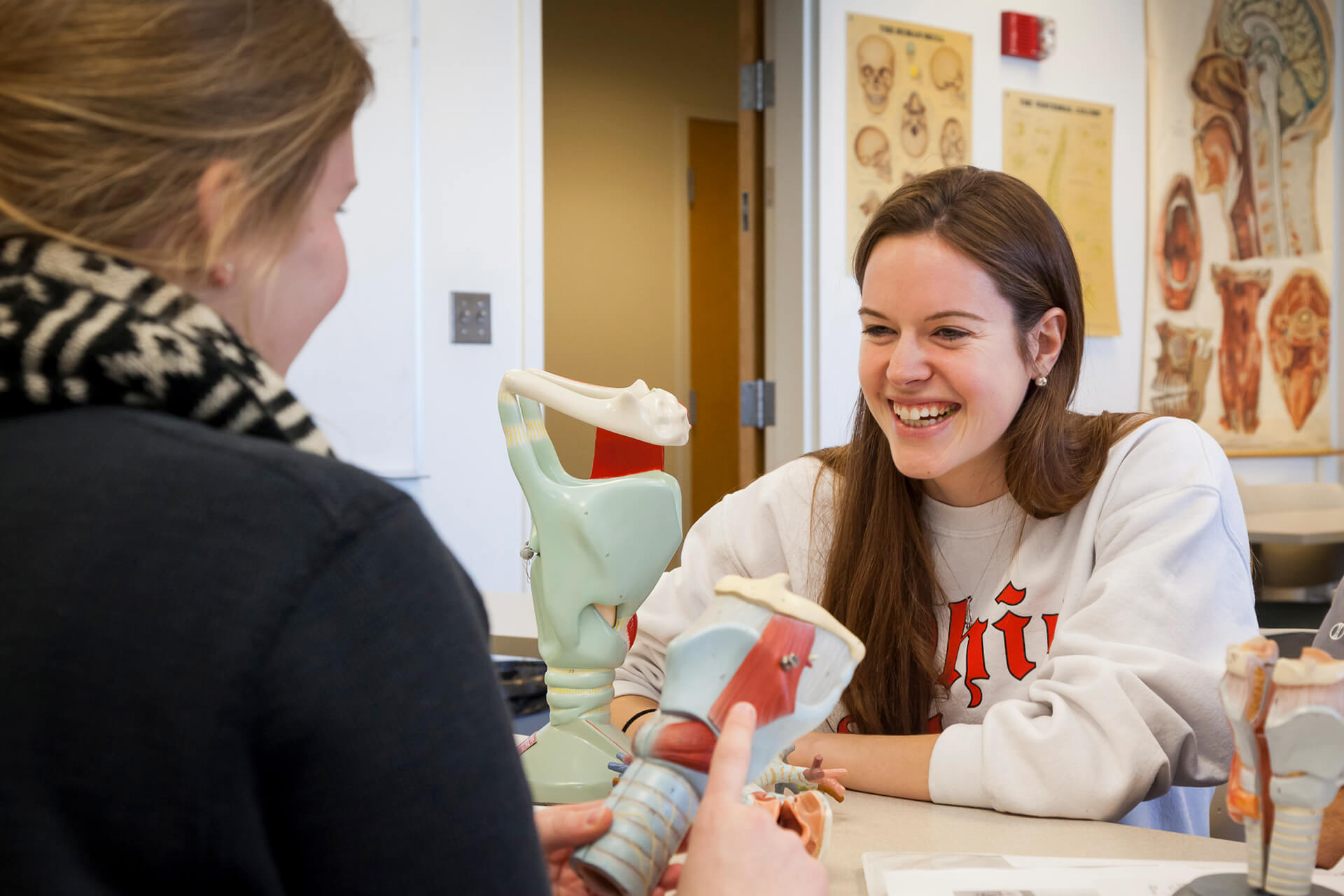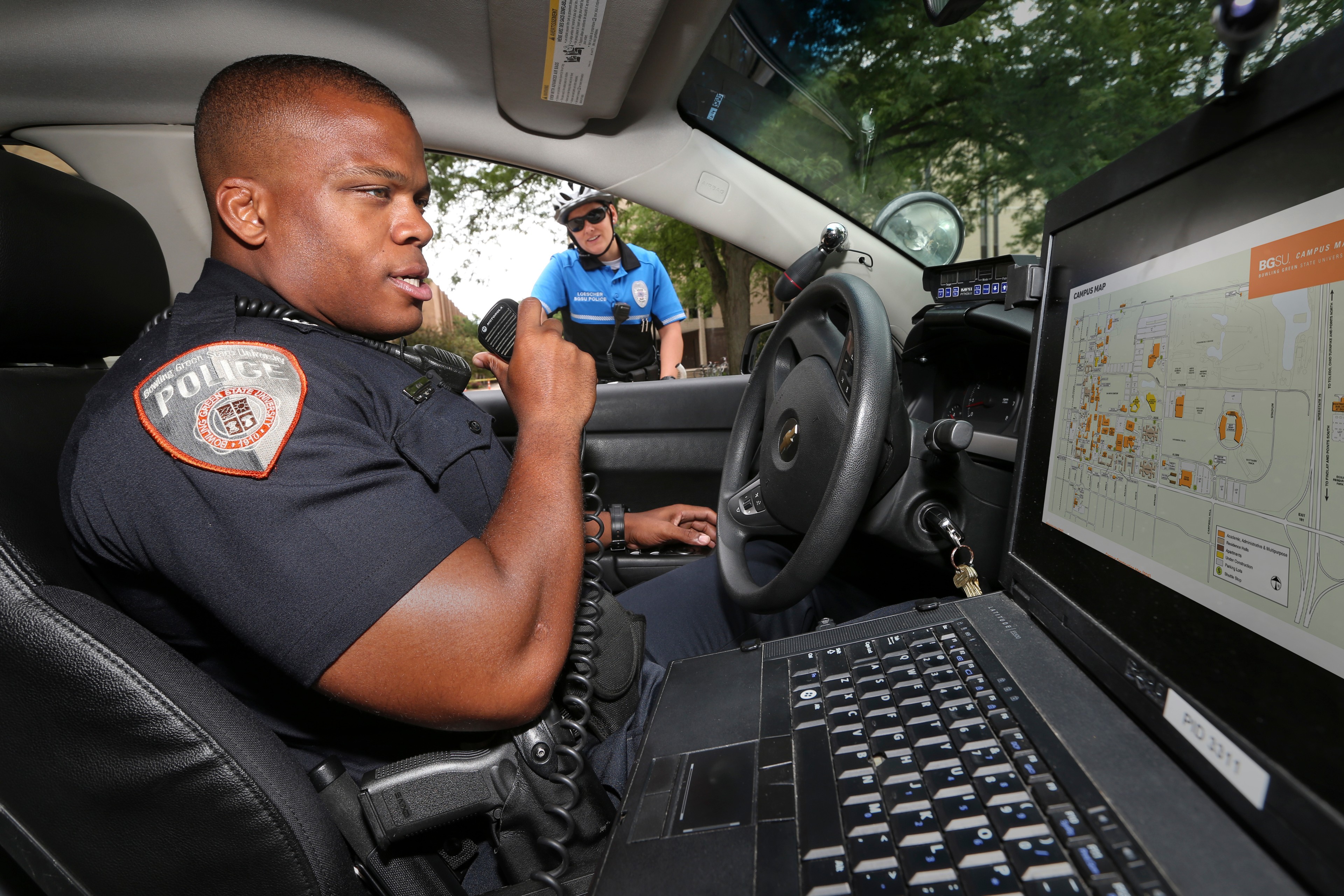Nationally recognized for student experience
The Wall Street Journal

Bachelor of Science (B.S.)
Minor
Communication Disorders
A bachelor’s degree in communication sciences and disorders prepares you for a career as:
- A speech-language pathologist or audiologist who helps children and adults overcome speech, language or hearing disorders, or
- A scientist focused on research and teaching
Our bachelor’s degree program provides the strong foundation in human communication sciences that you need to begin practicing in an allied health career (professions in healthcare that aren’t medicine or nursing) or to enter a graduate program. A master’s degree is required to practice as a speech-language pathologist; a clinical doctorate is required to become an audiologist; and a Ph.D. is required to be a speech, language or hearing scientist.
BGSU also offers a minor in communication sciences and disorders.
Why study communication disorders at BGSU in Ohio?
- Expert faculty. Learn from faculty with expertise in audiology, autism spectrum disorder, child language, bilingual language development, stuttering, traumatic brain injury and voice and motor speech disorders.
- Undergraduate research. Faculty welcomes collaboration. Many students go on to present research at state and national conferences and are published in peer-reviewed journals.
- Living + learning community. Live with other science, health and pre-professional students in the Natural and Health Science Residential Community. Students say the academic support they receive gives them a significant advantage when applying to graduate programs. Community members share information and ideas and are guided by dedicated faculty.
- Valuable real-world experience. A required capstone experience will allow you to complete your required guided observation hours and learn how to write goals, therapy plans and summary notes.
- Networking opportunities. Grow as a speech and language science student by joining our active Chapter of the National Student Speech Language Hearing Association. The student organization hosts professional development sessions, welcomes guest speakers and holds social and fundraising events.
- Graduate options at BGSU. Transition to graduate school by applying to BGSU’s accredited master’s degree program in communication science and disorders, which offers a specialization in speech-language pathology.
#1 public university in Ohio for career prep
The Wall Street Journal
Careers – what can you do with a communication disorders degree?
BGSU’s bachelor’s degree in communication disorders prepares you to move on to graduate school in:
- Speech-language pathology
- Audiology
- Speech, language or hearing science
The bachelor’s degree also can serve as an excellent foundation for graduate work in related fields, including a wide range of allied health and educational careers such as:
- Occupational therapy
- Physical therapy
- Intervention specialist
- Gerontology
Our graduates work in the healthcare, education and research industries.
Employment in this field is projected to grow much faster than the average for all occupations – more than 20% over the next decade, according to the U.S. Bureau of Labor Statistics.
Career paths
- Speech-language pathologist
- Audiologist
- Allied health professional
- Educator
- Human development and communication specialist
- Behavioral therapist
Quick Facts from the Bureau of Labor Statistics
Curriculum
Study the science of the human communication process, as well as the theoretical and practical aspects of therapy.
Core courses cover:
- The mechanics of speech
- How speech is acquired and develops
- The acoustics of speech and hearing
- How to assess and provide therapy for range of disorders
The minimum, entry-level qualification to practice as a speech-language pathologist is a master’s degree. To practice as an audiologist, a Doctor of Audiology is required. Our bachelor’s program will allow you to learn the basic skills and knowledge you need for admission into a graduate program.
You can continue your education at BGSU by applying to our:
- Accredited master’s degree program in communication science and disorders, which offers a specialization in speech-language pathology
- Doctoral program in communication disorders
Hands-on education
Practical classes and clinical observation will be an essential part of your curriculum.
- Complete guided observation hours. Watch speech-language pathologists treating patients and learn how to write treatment goals, therapy plans and summary notes.
- Conduct research with communication sciences and disorders faculty and Ph.D. students or through the BGSU Center for Undergraduate Research and Scholarship (CURS) program.

Sample courses
- Introduction to Communication Disorders
- Phonetics (study of speech sounds)
- Speech and Language Acquisition and Development
- Anatomy and Physiology of the Speech Mechanism
- Language Assessment and Intervention
- Introduction to Audiology
#1 university in Ohio – big or small, public or private – students would choose again
The Wall Street Journal
The communication disorders program is part of the Department of Communication Sciences and Disorders in the BGSU College of Health and Human Services.
Accreditation
Bowling Green State University [BGSU] is accredited by the Higher Learning Commission. BGSU has been accredited by the Higher Learning Commission since 01/01/1916. The most recent reaffirmation of accreditation was received in 2022-2023, with our next reaffirmation of accreditation scheduled for 2032-2033. Questions should be directed to the Office of Institutional Effectiveness.
Updated: 08/12/2025 10:51AM

